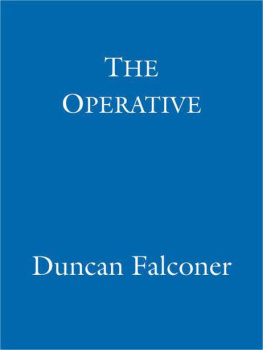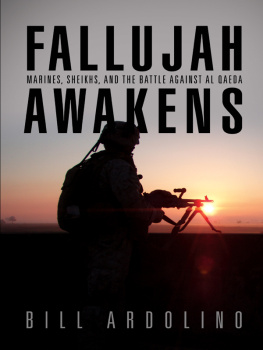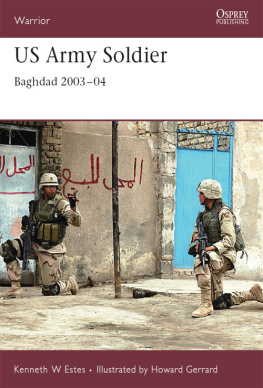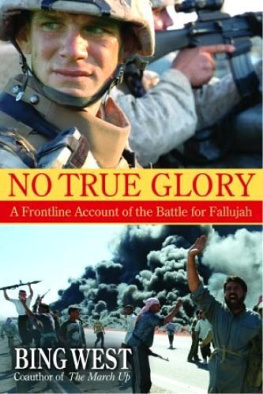The Protector
DUNCAN FALCONER
Hachette Digital
www.littlebrown.co.uk
Table of Contents
Duncan Falconer is a former member of Britains elite Special Boat Service and 14 Int., Northern Irelands top-secret SAS undercover detachment. After more than a decade of operational service he left the SBS and went into the private security circuit. His first book, the best-seller First Into Action, documented the real-life exploits of the SBS. His three subsequent books, The Hostage, The Hijack and The Operative, follow the fictional exploits of SBS operative Stratton. The Protector is his fourth novel.
In the last few years Falconer has operated at length and often alone in places such as Afghanistan, Palestine, Liberia and throughout Iraq. He now lives anywhere between his three bases in England, North America and South Africa.
A gripping and authentic view of life and death in the dangerous world of private protection by someone who has been there and worn the T-shirt
Soldier Magazine
Also by Duncan Falconer
The Hostage
The Hijack
The Operative
Non-fiction
First Into Action
The Protector
DUNCAN FALCONER
Hachette Digital
www.littlebrown.co.uk
To Ricky
Mallorys Treasure
The Royal Navy Search and Rescue Sea King helicopter flew low and fast over the flat grubby desert, all eyes in the cockpit focused on a thin trail of black smoke half a mile ahead. Beyond it was a blurred collection of dilapidated dwellings on the other side of a road that marked the northern edge of the town of Fallujah that was a short flight west of Baghdad. Visibility was poor in every direction, a fine dust filling the air like smog and with more trails of carbon smoke dotting the hazy landscape like plumes from the stacks of distant steamships, columns of dark vapour bending gently on a south-easterly breeze.The pilot was tracking a signal that had its focus point a little to the left of the closer, finer plume. It was on an emergency bandwidth emitted by a radio in the hands of a British Tornado pilot whose aircraft had been shot down in the last twenty minutes.
Royal Marine Corporal Bernard Mallory stood beside his Royal Navy partner, Petty Officer Mac Davids, in the narrow doorway that connected the cabin to the cockpit. At thirty, Mac was a couple of years older than Mallory, a head taller and not as strongly built but a hundred yards faster in a mile race. Mallory pushed the inside of his helmet against his ear as he strained to listen to the weak, intermittent radio message from the Tornado pilot who was answering the co-pilots request for his situation report.
All I want to know, for Christs sake, is if the area is hot or not, the pilot said, a little tense, more to himself than to anyone else. His eyes darted back and forth across the range of his vision, looking for any sign of a threat that he knew was out there somewhere. It would not have been this crews normal responsibility to carry out the rescue of a downed pilot in hostile territory.That task usually went to Special Forces flights and the rescue crews were normally made up of SAS and SBS operatives. But when the distress call came in none were immediately available and Samuels, the Sea King pilot, a gung-ho type who had missed the first Gulf War by only a couple of months, elected to at least check the level of hostility. The duty watch officer running the operations desk had allowed him to give it a go but only if there was zero enemy ground activity.
Mac and Mallory had exchanged glances when theyd first heard their bosss request to do a recce, knowing his hankering for a bit of the excitement whose lack he had been complaining of. His appetite was more urgent now that the war was fast coming to an end.
The tension in the helicopter increased perceptibly as Samuels took some lift out of the rotors and dropped the heavy beast to a couple of hundred feet above the ground.They were now exposed not only to anti-aircraft guns and rockets but also to small-arms fire.
In the back of everyones mind was the questionable logic of risking the lives of four men to save just one but that was a danger they had accepted before joining the search-and-rescue service.This was the wrong time to dwell on it anyway but the arithmetical reasoning was more acute at this stage of an operation.
Mallory stepped back from the cockpit doorway, pulled his black-tinted sunshade visor down, gripped the heavy handle of the large side door and yanked it across on its runners until it engaged the catch that locked it open. The wind charged in aggressively, ravaging every inch of the cabin and tossing around anything that could not hold firm against it. He held on to the winch above to lean out and get a better look to starboard while Mac went to a port-side window.
Mallory looked down at the arid ground a hundred feet below as it shot past: dirty gold sand with a sprinkling of black giving way to sparsely cultivated patches of bracken-like vegetation, a track with a battered pick-up trundling along it, a line of parched, dust-coated eucalyptus trees, a herd of scattering goats with the shepherd boy twisting in their midst to look up at him. What sounded like far-off explosions were barely discernible above the noise of the engines and rotors chopping the air and except for the handful of distant smoke columns he could see little evidence of the heavy air assault taking place in the southern part of the town.
The Sea King had originally been on its way to an American base - confidently named Camp Victory - at Baghdad International Airport on the west side of the city when theyd picked up the downed pilots distress call. Soon after diverting from their course and picking up the location of the emergency beacon they heard the Tornado pilots voice confirming that he was alive. The level of Iraqi resistance in the area was unknown since there were no coalition troops close enough to make that assessment. But it was believed to be light since the main ground-fighting in the sector was concentrated further south on the Baghdad side of Fallujah. The Iraqi military had for the most part disintegrated. Isolated groups of Republican Guard were putting up a token resistance in places but the back of the enemy had been broken and the majority of the army had abandoned their weapons and uniforms. However, a lone helicopter close to the ground was an irresistible target to any Iraqi who still had a gun. One lucky shot could turn the rescue mission into a fight for survival. That danger would only increase when the moment came to hover close to the ground and pick up the downed pilot.
A loud thwack, like the noise of a stone striking the helicopters thin metal fuselage, made everyone start. The pilot banked the lumbering whale of a craft as sharply as it could go, the rotors complaining loudly as he put excessive torque on the engines.
What was that?! he shouted.
Mallory instinctively ducked back into the cabin, suspecting that it had been a bullet. Then, gritting his teeth, he leaned back outside to inspect the helicopters body and saw a small hole only a couple of feet from him, towards the tail. Got a strike low on the cabin skin below the numbers, he shouted into his mike against the wind. He looked inside for the corresponding hole but could not see anything: wrinkled padding and a row of folded hammock seats obscured the inside wall. From what I can see were fine, he said, guessing while looking at the other side of the cabin for an exit hole. He didnt find one. Mac scanned the roof for any sign of damage, then went back to the port-side window.
Next page





